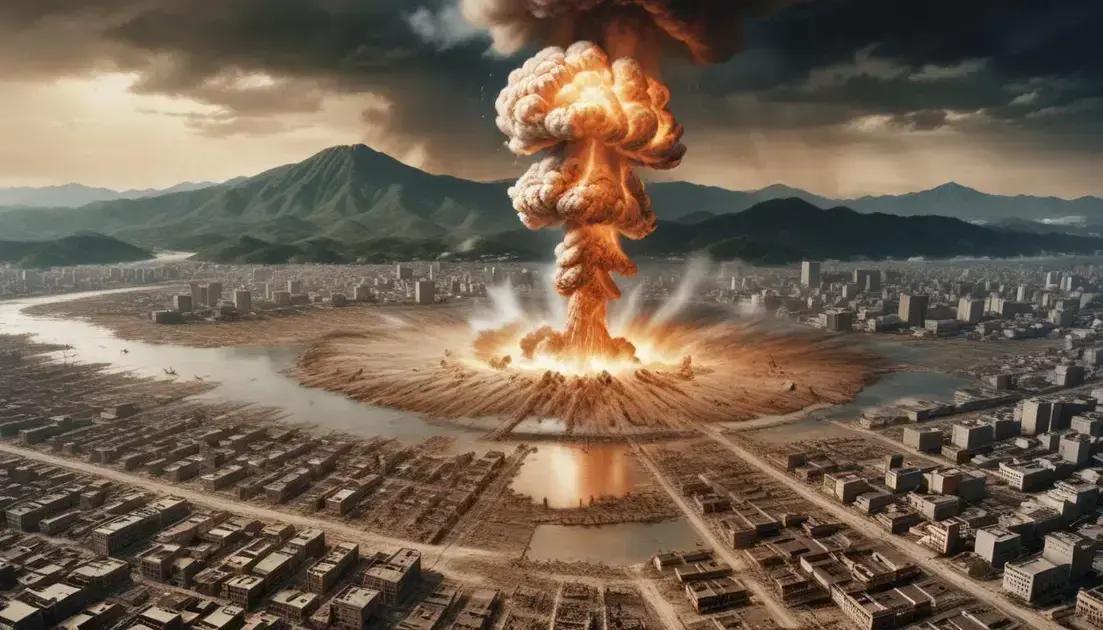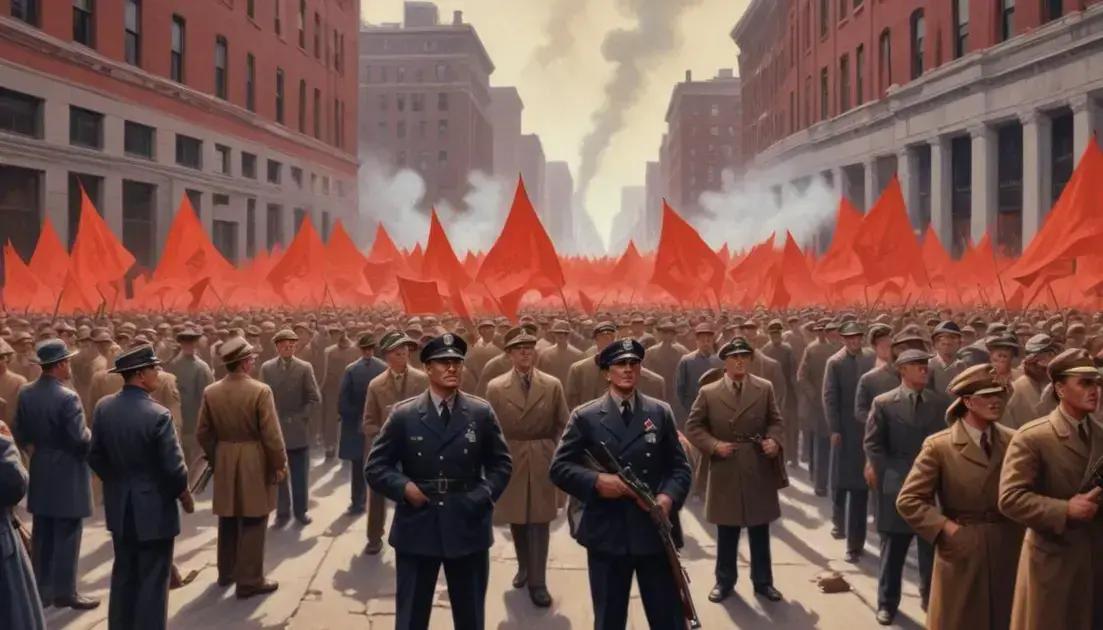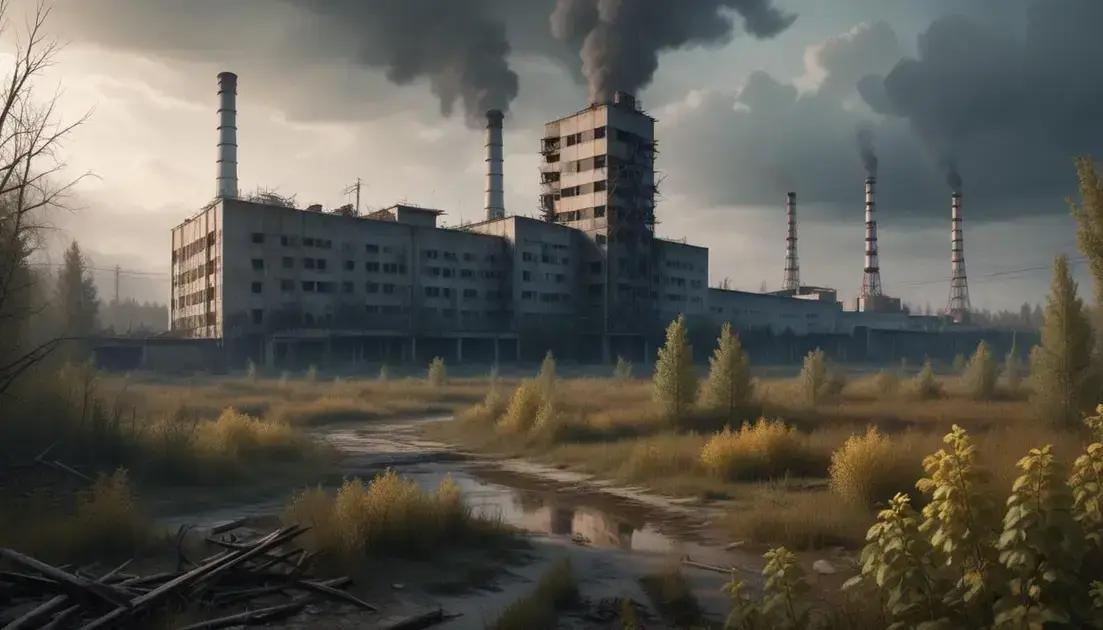
The Atomic Bomb: Science, Ethics and World Order
The atomic bomb dramatically shaped history, marking a turning point in warfare and international relations. Its development led to the Cold War, as nations raced to build nuclear arsenals. Ethical concerns regarding civilian suffering and the morality of using such devastating weapons continue to spark debate today. Understanding these impacts is crucial for promoting peace and preventing future conflicts, highlighting the need for nuclear disarmament efforts.
Welcome to our exploration of the Atomic Bomb, where we’ll dive into its profound impact on science and ethics around the world. Are you ready to unravel this historical narrative?
Introduction
Understanding the Atomic Bomb is crucial for grasping its role in world history. It wasn’t just a scientific breakthrough but also a turning point in global politics. The first use of an atomic bomb happened in 1945 in Japan. This event changed how countries viewed warfare and power.
The Science Behind the Bomb
At its core, the atomic bomb works by splitting atoms, which releases a huge amount of energy. This process is called fission. Scientists discovered that when certain elements, like uranium, are split, they release energy that can create powerful explosions.
The Ethical Questions
Dropping the bomb raised many ethical questions. Was it right to use such a devastating weapon? Many people debate this even today. The impact on civilians was enormous, leading to discussions about morality in warfare.
The Cold War Connection
The use of the atomic bomb set the stage for the Cold War. Countries rushed to develop their own nuclear weapons. This arms race created fear and tension, leading to decades of rivalry between major powers.
By exploring these aspects of the atomic bomb, we can understand its lasting impact on our world today. It’s a reminder of how science and ethics are interconnected.
The Science of Atomic Bombs
The science behind atomic bombs is fascinating and complex. At the heart of it is a process called fission. This happens when the nucleus of an atom splits into smaller parts. When it splits, it releases a lot of energy in the form of an explosion.
Two main elements are often used in atomic bombs: uranium and plutonium. Uranium-235 is the isotope that can sustain a chain reaction. This means that one atom’s split can cause another one to split too, leading to a massive release of energy.
To create an atomic bomb, scientists must first enrich uranium. This means increasing the percentage of uranium-235. Once they have enough enriched uranium, they can trigger an explosion using conventional explosives.
During the explosion, a great amount of heat is generated. This heat creates a shockwave that can destroy buildings and cause fires. The impact of the atomic bomb goes beyond physical destruction. It can also produce dangerous radiation, which harms living beings long after the explosion.
Understanding the science of atomic bombs helps us see the power and danger they hold. It’s a reminder of how our understanding of science can lead to both great achievements and immense challenges.
Ethics in Warfare
Ethics in Warfare is a big topic when it comes to the atomic bomb. The use of such powerful weapons raises serious moral questions. Many people wonder whether it’s ever right to use a bomb that causes so much destruction.
One key issue is the impact on civilians. When atomic bombs were dropped on Hiroshima and Nagasaki, thousands of innocent people lost their lives. The suffering didn’t end there. Many survivors faced long-term health problems from radiation exposure. This raises the question: Is it worth the price?
Another point to consider is the idea of necessity. Some argue that the bomb’s use was necessary to end World War II quickly. Others believe it was simply an act of power. These differing views make conversations about ethics in warfare very complicated.
We also need to think about the future. As technology advances, new weapons might emerge. How will we ensure that such weapons are used responsibly? The ethical discussions must continue as we learn and grow as a society.
The debate about the atomic bomb and ethics in warfare is crucial. It helps us examine our values and the responsibilities we have in a world with such powerful weapons.
The Cold War Impact
The Cold War had a huge impact on the world after the atomic bomb was used. Following World War II, tensions between the United States and the Soviet Union grew. Both countries raced to build more nuclear weapons. This arms race changed politics and military strategies across the globe.
During the Cold War, the fear of nuclear war loomed large. People worried about what would happen if tensions escalated. Governments built bomb shelters and practiced air raid drills. This created a culture of fear and uncertainty in many nations.
Conflict also led to new alliances. Countries joined together to either support or oppose nuclear arms. Organizations like NATO formed as military responses to the perceived threats. Meanwhile, the Soviet Union created its own alliances to counter Western influence.
Some scientists and activists raised concerns about the dangers of nuclear weapons. They argued that the bombs should not be used. This led to movements advocating for disarmament. The push for nuclear arms control began to take shape during this era.
The Cold War showed how nuclear power could shape international relations. It changed how countries viewed security and diplomacy. The struggle between superpowers influenced many conflicts globally, reminding us of the lasting legacy of the atomic bomb.
Conclusion
The topic of the atomic bomb impacts us in many ways. Understanding its history helps us see how much was at stake. From science to ethics, each aspect matters.
New technologies continue to evolve, but the lessons learned from the atomic bomb should never be forgotten. Discussions about peace and disarmament remain vital today.
The effects of the bomb are felt across generations. By studying the past, we can aim for a safer future.
It’s important to reflect on how power can change our world. Keeping these conversations alive encourages us to think critically about warfare and security.
When we talk about the atomic bomb, we’re not just discussing science. We’re examining our values and our commitment to humanity.
Conclusion
In conclusion, understanding the impact of the atomic bomb is crucial for everyone. It shows us how science, ethics, and politics intertwine. The choices made in the past shape our present and future.
By reflecting on the lessons learned from the use of the atomic bomb, we encourage ongoing conversations about peace and nuclear disarmament. It’s essential to remember that the power of nuclear weapons comes with great responsibility.
As we move forward, we must work together to ensure a safer world. Talking about these important issues helps us build a better future for everyone. Understanding our history allows us to promote peace and avoid repeating the mistakes of the past.


